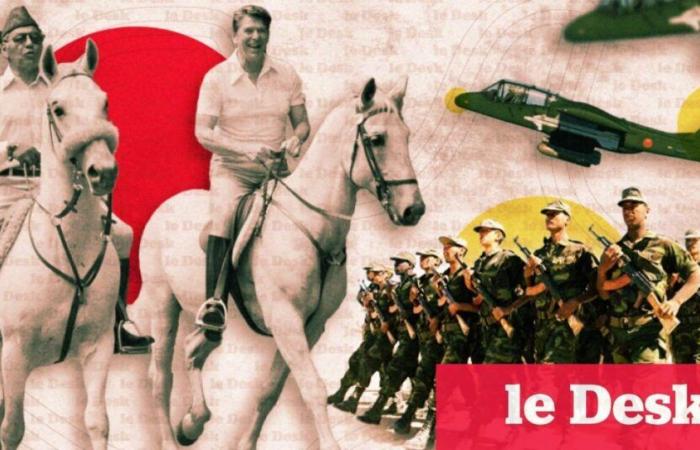The latest batch of American diplomatic archives on North Africa concerns the 1980s, a troubled time for Morocco highlighting ambivalent relations between King Hassan II and President Ronald Reagan, tenant of the White House during two terms. successive between 1981 and 1989. Tinted with cordiality, sometimes even familiarity, the relationship between the two men nevertheless warms up those, much cooler, between the monarch and Jimmy Carter, predecessor of Reagan, whom the news made reappear at the very end of 2024 following his disappearance.
American cables and memos from this period, coming from the CIA, the State Department and its embassy in Rabat, the Pentagon and even the presidential archives, which The Desk examined, confirm that this period constitutes a real turning point in the bilateral relationship between the two countries, during which Washington agreed, at the twilight of the Cold War, to align itself with the interests of Rabat. It was under the Reagan presidency in fact that the United States decided to militarily support Morocco in its war effort in the Sahara, while the threat from the Polisario militias supported by Algiers and Tripoli was at its height. The declassified documents also illustrate how the American executive places particular interest in Hassan II’s expertise in geopolitics, especially that which concerns the burning news of Arab-Muslim countries. However, the documents also reveal Washington’s distrust of the sustainability of a regime that “economic difficulties and pressures for political liberalization portend serious difficulties”. Furthermore, the Americans take a dim view of the surprising alliance between Morocco and Libya, contracted by Hassan II and Muammar Gaddafi on the occasion of the Treaty of Oujda in August 1984.
Faced with a fait accompli, American diplomats do not hesitate to condition aid to Morocco on freezing this rapprochement with the man they consider to be a terrorist. For its part, Rabat is trying, as best it can, to justify this unexpected and disturbing strategic orientation, especially since the king has never hidden from the Americans his aversion towards the Guide of the Libyan revolution. Finally, diplomatic documents tell us about more anecdotal facts, relating to lighter subjects, such as Reagan and Hassan II’s shared passion for horses, or even that NASA considered making Casablanca and later Benguerir a “alternative landing site for Space Shuttle flights”. Most of the information to be drawn from this new burst of documents is ultimately linked to the destiny of the relationship between Rabat and Washington, whose current contours are taking shape during the 1980s, at the crossroads of the great geopolitical upheavals in the world.
Morocco






